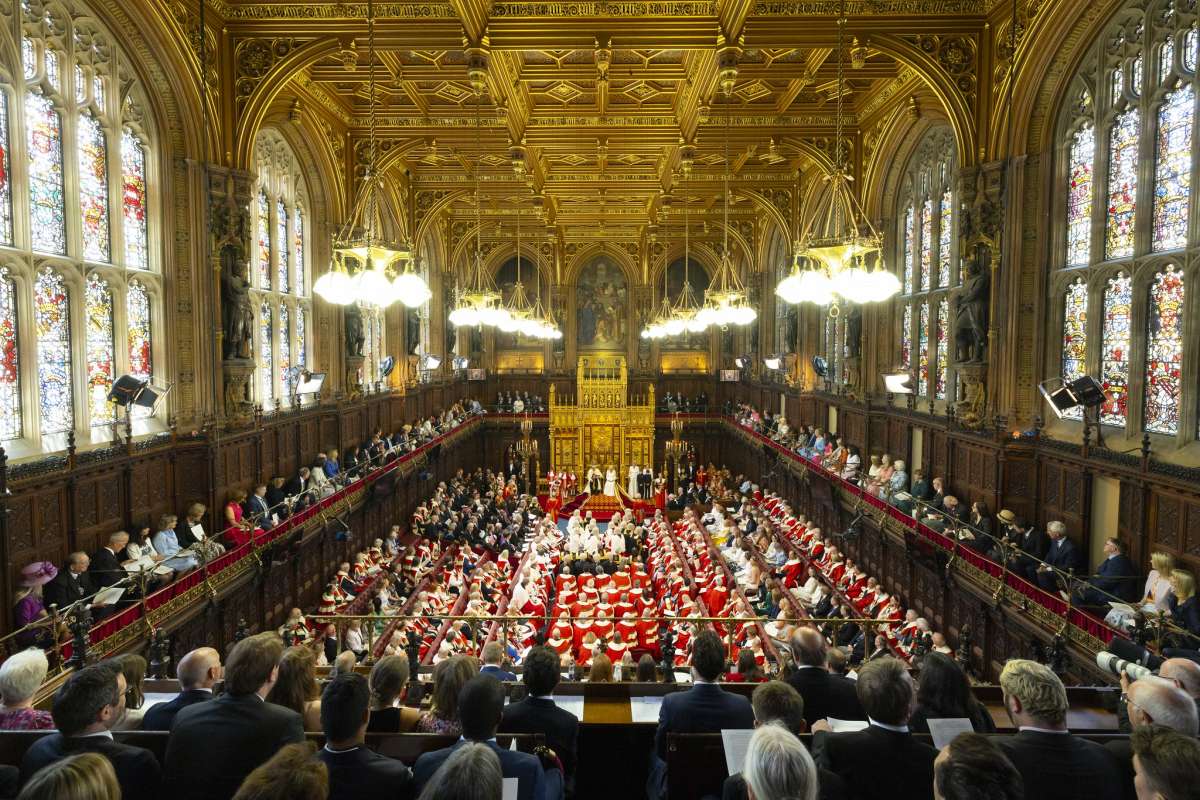The bill will remove the 92 seats reserved for peers who inherited their position as a member of an aristocratic family…reports Asian Lite News
The government is set to introduce legislation to remove seats in the House of Lords retained for hereditary lawmakers as it moves to reform parliament’s unelected upper chamber.
The bill will remove the 92 seats reserved for peers who inherited their position as a member of an aristocratic family. They hold titles such as duke, earl, viscount and baron. Britain is an anomaly among western governments in having such lawmakers.
The move was a manifesto commitment of Prime Minister Keir Starmer’s Labour party ahead of its landslide general election win in July, which returned it to power for the first time in 14 years.
It resurrects reform of the Lords that started under Tony Blair’s Labour government in the late 1990s. “This is a landmark reform to our constitution,” constitution minister Nick Thomas-Symonds said in a statement.
“The hereditary principle in law-making has lasted for too long and is out of step with modern Britain. The second chamber plays a vital role in our constitution and people should not be voting on our laws in parliament by an accident of birth,” he added.
The legislation will easily pass the House of Commons lower chamber due to Labour’s massive majority before it will have to be approved by the Lords. It is not clear when exactly it will become law.
Lesotho in southern Africa is the only other country in the world with a hereditary element in its legislature, according to UK officials. The scrapping of the hereditary peers has been described by Labour as a “first step in wider reform”.
The government says it wants to ultimately replace the Lords with an alternative second chamber that is more representative of the UK. The Lords comprises around 800 members, most of whom are appointed for life.
They include former MPs, typically appointed by departing prime ministers, along with people nominated after serving in prominent public- or private-sector roles, and senior Church of England clerics, including the Archbishop of Canterbury. The primary role of the centuries-old chamber is to scrutinise the government.
It cannot override legislation sent from the popularly elected House of Commons, but it can amend and delay bills and initiate new draft laws. Blair’s government had intended to abolish all the seats held by hundreds of hereditary members who sat in the chamber at that time.
But it ended up retaining 92 in what was supposed to be a temporary compromise. Lords reform has proved a thorny issue for successive administrations, in part because officials have struggled to propose better alternatives.
Angela Smith, the Lords leader, said: “While recognising the valuable contributions many hereditary peers have made to parliament, it is right that this reform is being brought forward now – completing work we began 25 years ago.”
“Removing the hereditary principle from the Lords will deliver on a specific manifesto commitment. It will also help deliver on our commitment to reduce the size of the second chamber, as we bring forward further reforms.”
Smith has previously said that Labour wanted to shrink the Lords, which has about 800 members, to the same size as the Commons, which has 650. Most members of the Lords are appointed life peers, though 26 places are reserved for archbishops and bishops of the Church of England.
In its manifesto, Labour committed to introducing a retirement age of 80 for life peers and to ultimately replacing the Lords with an alternative second chamber that is more representative of the UK.
In the meantime, the government has sought to bolster its numbers in the upper chamber by appointing a series of life peers including several retiring Labour MPs. James Timpson, the former chief executive of the Timpson Group, and Patrick Vallance, the former government chief scientific adviser, have been handed peerages so that they could take up ministerial positions. More appointments are expected in the coming months.
At present there are 277 Conservative peers, 185 Labour ones and 183 cross-benchers.
The bill to abolish hereditary peers will have its first reading in the Commons on Thursday and its second reading later this autumn. Government figures expect the bill to be debated for a long time once it has made its way to the Lords.
Of the 92 hereditary peers who retain seats in the Lords, 42 take the Conservative party whip and 28 are cross-benchers. Only two are Labour peers and three are Liberal Democrats. These numbers are fixed and do not change to reflect the makeup of parliament.
The only country besides the UK with a hereditary element in its legislature is Lesotho, according to the University College London Constitution Unit.
ALSO READ: Baloch diaspora protest in London, Amsterdam against atrocities

